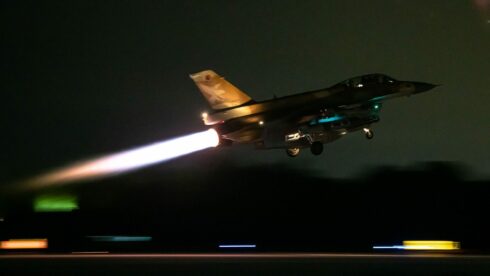Another wave of Israeli strikes targeted Lebanon late on April 8, following reports of Hezbollah showing willingness to disarm.
Lebanon’s National News Agency said that the strikes hit a building in the Hawsh Tal Safiyya area close to the town of Boudai to the west of the city of Baalbek in the northeast of the country. No casualties were reported by the official agency.
Later, the Israeli Defense Forces (IDF) announced in a brief statement that it had struck a building used to store weapons used by Hezbollah’s aerial defense unit.
“The presence of the weapons in the area constituted a threat to the State of Israel and a blatant violation of the understandings between Israel and Lebanon,” the statement reads.
Hezbollah began launching attacks against the IDF on October 8 of 2023, a day after its ally, the Palestinian Hamas Movement, launched a surprise attack from the Gaza Strip into Israel. After taking heavy losses in the confrontation, the group agreed to a ceasefire last November.
The ceasefire, which was brokered by the U.S., was supposed to end all clashes on the Israeli-Lebanese border by February 18. However, the Israeli military continues to launch strikes against Hezbollah. It also maintains troops at five strategic points in southern Lebanon.
Hezbollah has so far refrained from responding to the IDF in any way. Nevertheless, this was not enough to satisfy the U.S. or Israel.
During a visit to the Lebanese capital, Beirut, last week, U.S. Deputy Special Envoy for the Middle East Morgan Ortagus discussed disarming Hezbollah with senior officials of the country, without setting a deadline.
In an interview with Lebanese television channel LBCI broadcast, Ortagus said that the U.S. continued to press the Lebanese government “to fully fulfill the cessation of hostilities, and that includes disarming Hezbollah and all militias,” adding it should happen “as soon as possible.”
Ortagus went on to describe Hezbollah, the largest Shiite party in Lebanon, as a “cancer” in a separate interview with the Saudi news channel Al-Arabiya.
“When you have cancer in the body, you don’t just treat part of it — you cut it all out,” the diplomat said.
“Lebanese leaders can either choose to let Lebanon decline further into the abyss or take back their country. If they make the hard decision, they will have US support,” she added.
In the face of unprecedented pressure, a senior Hezbollah official told Reuter on April 8 that the group was ready to hold talks with the Lebanese president about its weapons if Israel withdraws from southern Lebanon and stops its strikes. The official noted that any such discussion should be held in the context of a national defense strategy.
“Hezbollah is ready to discuss the matter of its arms if Israel withdraws from the five points, and halts its aggression against the Lebanese,” the senior official told Reuters.
While Hezbollah has not yet officially confirmed the report, such a political maneuver will not be surprising considering that with the fall of the regime of president Bashar al-Assad in Syria the group lost the ability to maintain and supply its large forces in Lebanon.
A recent report by the Saudi al-Hadath news outlet said that Hezbollah was now using a complex naval route to smuggle weapons from Iran to Lebanon, relying mainly on the port of Beirut. The unverified report alleged that figures from the Iranian Islamic Revolutionary Guards Corps Quds Force were involved in smuggling operations at the port.
_______________________________________________________________________________________________________________________
SouthFront: Analysis and Intelligence
NOW hosted at southfront.press
Previously, SouthFront: Analysis and Intelligence was at southfront.org.
The .org domain name had been blocked by the US (NATO) (https://southfront.press/southfront-org-blocked-by-u-s-controlled-global-internet-supervisor/) globally, outlawed and without any explanation
Back before that, from 2013 to 2015, SouthFront: Analysis and Intelligence was at southfront.com






